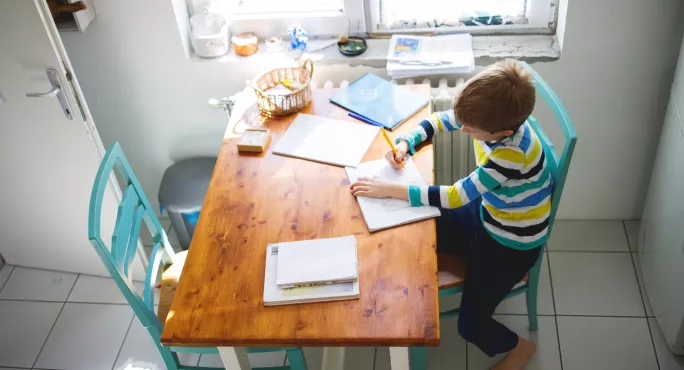Over the past few weeks, we have seen some incredible acts of community spirit: key workers providing essential service, aged people completing feats of stamina to raise money, clapping for the NHS and generally pulling together as a nation.
As schools begin to gradually reopen to more students, how can we capture this positive community feeling and transition it into the school environment so we can have the best possible start back for our pupils?
Coronavirus: My priorities for when school reopens
1. Routines
Routines are important to create a sense of stability in our world, as many of us will have discovered during the lockdown period. As much as we might resent getting up at certain times, or living lives by the clock sometimes, where there is uncertainty these things will help our young people to maintain a sense of normality and a sense of unity.
When we complete certain tasks at the same time as others, it creates a sense of community. That is why the Thursday night clapping has drawn people together, and shared remote viewing, for example of the theatre productions online, has been effective in creating a feeling that people are together when they are actually apart.
We should emphasise routines in schools and use technology wherever possible to have shared moments, such as delivering assemblies or key messages across the school. Some have already made use of that while students have been at home and there would be real value in continuing this.
2. Questions
Give students some time to ask questions and address concerns. These could be sent anonymously or as an open discussion, depending on your context.
As we see when addressing PSHE topics, it is important to know that others have the same questions or concerns as you and this will help to build empathy and strengthen relationships.
Set aside distinct times where they can discuss the issues which are important to them and let them suggest ways forward for each other.
However, after the first day or so, try to contain these sessions to set periods, a tutor session, maybe morning and afternoon, as it is easy to have questions, concerns and speculation overtake the day to day, causing more anxiety than it eases.
3. Learning
As with other school-based routines, there is familiarity in continuing to learn. Getting on with the learning provides a clear definition of roles, and students will gain comfort in returning to this.
That is not to say this will be easy; for some students, they may well have had less practice at the hard graft over the past few months or may have had other things dominating their lives. They will need gentle reintroductions to this world, building their confidence up by showing them that they haven’t forgotten everything they have learned.
However, it is useful to start from a position of learning as students know how they interact in a school learning environment, particularly at a time where they may be getting used to a whole different group of classmates.
4. Laugh
One of the things I loved so much when I was in the classroom just a few short months ago was how much we laughed. Whether we were discussing tragedy in Shakespeare or stumbling over the complexity of syntax in Dickens, somehow, we always found ourselves laughing about something.
The more difficult the class and the more disparate the group, the more we seemed to find humour to share. And when we did, we felt like a unit.
Comedy didn’t develop as an art form by accident and we all know the cathartic qualities of laughing until we are exhausted with tears streaming down our faces. When that becomes a communal activity, we are all brought together in an incredibly positive way.
John Cleese said: “Laughter connects you with people. It’s almost impossible to maintain any kind of distance or any sense of social hierarchy when you’re just howling with laughter.”
What a wonderful way to bridge the distance we have all been enduring.
Zoe Enser is lead English adviser for Kent




